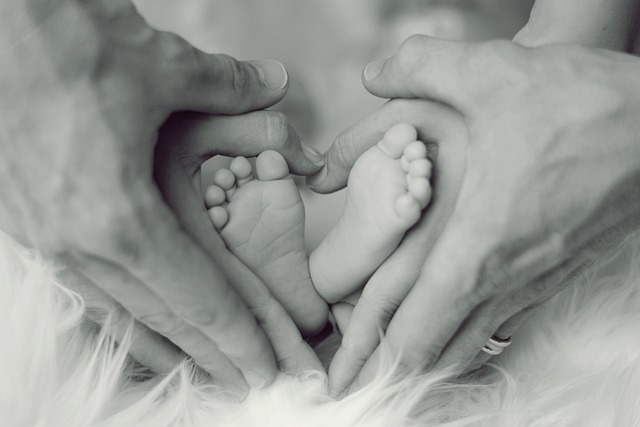Welcome to this incredible journey of parenthood! Your bundle of joy has brought so much happiness and excitement into your life. As first-time parents, it’s natural to feel uncertain about how to care for your newborn, but fret not!
These helpful tips will empower you to embrace your new role confidently and joyfully. Rest assured that credible sources back the guidance you find here so that you can trust the advice. Embrace this incredible chapter of life with positivity and love, and cherish every moment with your precious baby.
Table of Contents
What Steps Can I Take To Seek Assistance Once My Baby Arrives Home?
Caring for a newborn is a crucial responsibility, and taking care of yourself during this period is equally important. It can be overwhelming and busy, so don’t hesitate to seek assistance. Your relatives and friends might be eager to lend a hand. Even if you have differing opinions on some issues, remember that their experiences could provide valuable insights.
Regarding your baby’s health, ensure that anyone handling them is up to date with their vaccines and feeling well. This precaution will help keep your little one safe and sound. However, if you’re uncomfortable having guests or have other worries, don’t feel bad about limiting visitors. Your and your baby’s well-being is of utmost importance, and it’s lovely to prioritize them.
How Should I Care For My Baby?
If you haven’t spent much time around newborns, they might appear delicate and need special care. Here are some simple and essential things to keep in mind:
- Clean your hands: Before touching your baby, wash your hands thoroughly or use hand sanitizer. Newborns have a weak immune system, making them susceptible to infections. So, it’s essential that anyone handling the baby also has clean hands.
- Support the head and neck: When you carry your baby, gently cradle their head. Always support their delicate neck and head, whether you hold them upright or lay them down.
- Avoid shaking the baby: Never shake your baby, whether in play or frustration. This action can lead to serious harm, such as bleeding in the brain and, in severe cases, even death. If you need to wake your baby, try gently tickling their feet or blowing softly on their cheek.
- Secure your baby correctly: When using a carrier, stroller, or car seat, always ensure that your baby is fastened securely. Avoid any activities that could be too rough or bouncy for their sensitive bodies.
- Be gentle during play: Refrain from rough play with newborns, like bouncing them on your knee or tossing them in the air.
Remember, providing love and a gentle look After Your Baby helps their healthy development and creates a positive bond between you and your little one.
How Can I Foster A Strong Bond With My Baby?
Bonding with your baby is a unique connection in the first hours and days after birth. It’s like falling in love with your little one! Creating this bond is crucial for your baby’s emotional and overall development.
One way to strengthen this connection is through physical closeness. You can show them love and care by cradling and gently stroking your baby.
Another fantastic technique is skin-to-skin contact, also known as kangaroo care. This involves holding your newborn against your bare chest. Not only does it feel comforting for your baby, but it also helps regulate their heartbeat and soothes them.
To have a meaningful skin-to-skin contact experience, prepare by avoiding scented perfumes, lotions, and cigarette smoke.
Find a cozy spot in a softly-lit room and wear a shirt that opens in the front. Lay your baby on your bare chest with only a diaper on.
During this precious time, you can sit quietly, whisper, hum, sing, or even read aloud to your little one. Your baby may even doze off peacefully during this bonding session.
Remember, the love and unconditional affection you give your child are essential for their well-being and happiness. Embrace these bonding moments, as they play a significant role in nurturing a solid parent-child relationship.
How Can I Soothe My Baby?
Helping babies relax can have a tremendous impact on their happiness and comfort. Here are some easy tips to soothe your little one:
Massage: Massaging your baby can be especially beneficial for those born early or with medical issues. Certain types of massage can enhance the bond between you and your baby while aiding their growth and development.
You can find helpful resources in books and videos about infant massage, and don’t hesitate to ask your doctor for recommendations. Remember to be gentle since babies are not as strong as adults.
Sounds: Babies usually adore vocal sounds like talking, babbling, singing, and cooing. Soft music can also be a hit with your baby. Using baby rattles and musical mobiles are great ways to stimulate their hearing. If your baby is fussy, try singing, reciting poetry, or reading aloud while gently swaying or rocking them in a chair.
Some babies might be more sensitive to touch, light, or sound than others. They may startle and cry easily, sleep trouble, or shy away when someone speaks or sings. If this sounds like your baby, keep noise and light levels on the lower side.
Swaddling: Swaddling is another soothing technique that can work wonders during the first few weeks of your baby’s life.
Proper swaddling involves wrapping your baby snugly with their arms close to the body while allowing their legs to move a bit. This keeps them warm and gives most newborns a sense of security and comfort. Swaddling may also help limit the startle reflex, which can wake a baby.
How To Diaper My Baby?
Whether you choose cloth or disposable diapers, caring for your little one’s diapering needs can be a joyful experience!
On average, your baby may undergo about ten diaper changes daily, up to around 70 times a week. But don’t worry; each change is an opportunity for bonding and showing your love.
When you’re ready to change the diaper, have all the supplies you need close by, so you can focus on your baby’s comfort and happiness. Gently wipe your baby from front to back using water, soft cotton balls, or baby wipes – whichever your baby prefers. Remember to be extra gentle to keep your little one smiling.
If your baby happens to have a diaper rash, don’t fret! You can apply diaper cream to soothe and treat the rash, making your baby feel better quickly. The comforting touch and the pleasant cream will bring more smiles to both of you.
Lastly, as a good practice, always wash your hands after changing the diaper. It’s a simple way to keep you and your baby healthy and happy. So, cherish these precious moments of closeness and care with your little bundle of joy!
What Is The Recommended Timing For Bathing My Baby?
In the first few weeks of a baby’s life, they receive sponge baths, which are gentle and soothing. As they grow and their body heals, typically after the umbilical cord stump falls off and circumcision heals (if applicable), they can transition to having baths in a sink or a small plastic infant tub.
When it’s time for tub baths, it’s essential to be extra careful and tender. If your baby becomes upset or uncomfortable during these baths, don’t worry! You can always return to the soothing sponge baths for a week or two and try the tub bath again later.
Remember, bathing your baby twice or thrice a week during the first year is sufficient and safe. More frequent baths may cause the baby’s skin to dry out, so there’s no need to overdo it.
Ensuring your baby’s comfort and well-being is the most important thing, and these bath times can be precious bonding moments for you and your little one. Enjoy this particular time together!








